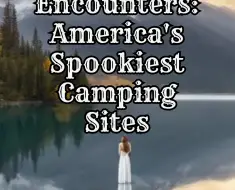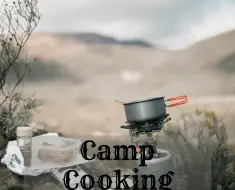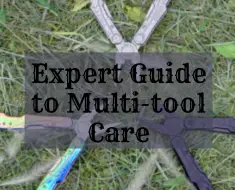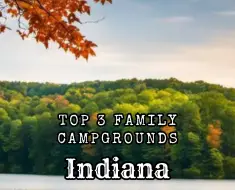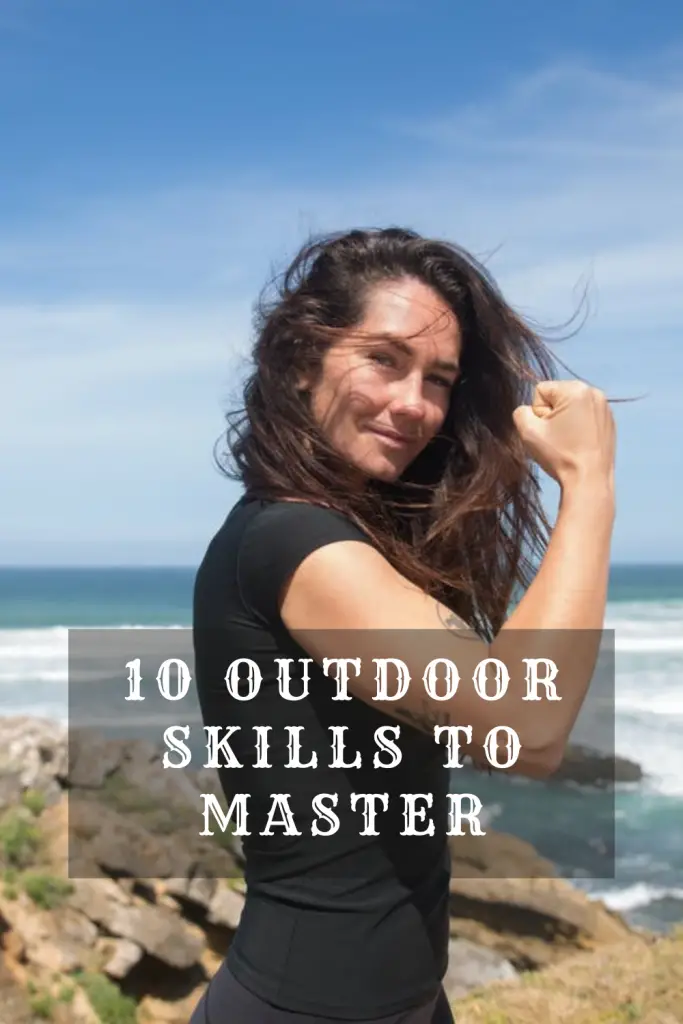
I love getting into the outdoors. However, there is a lot to think about when you are packing up your gear. So, before your car is all packed for your next trip consider these outdoor skills to master. These will be beneficial for you if you are going hiking, camping overnight, relaxing in your glampified RV, or if you find yourself in a survival situation. It simply never hurts to follow the old Boy Scout motto of “Be Prepared”! It is time to buckle down and learn a little bit more about these 10 outdoor skills to master.
1. First Aid, First Skill

First aid should really be the first outdoor skill to master. Without knowing how to care for yourself and others in the event of an emergency could turn a bad situation even worse. Having basic first aid knowledge and a simple first aid kit can save someone’s life. Taking a first aid course through the Red Cross helps prepare you for many situations that arise. Safety and First aid isn’t a one-and-done skill. It is something that takes practice and long-term mastery. Make sure that you take refresher courses periodically. One thing that many people forget to do is review their first aid kit to make sure it is replenished with materials while also removing out-of-date items. Safety First, Safety Always! Just starting out? Take a look at these first aid tips.
Stay safe while camping with Children
2. Starting a Fire
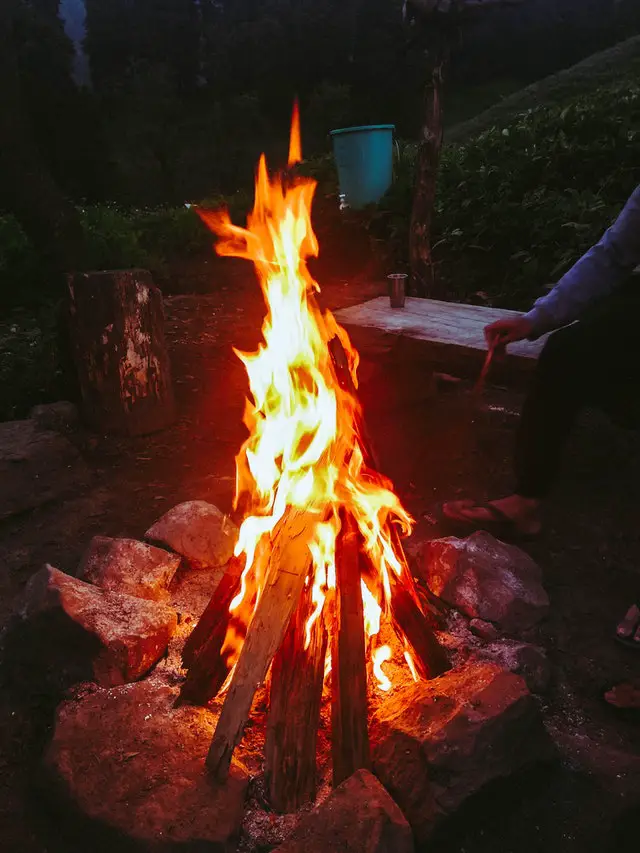
There are many different things that go into making a fire which is why this is the second outdoor skill to master. The most important of which is fire safety. However, the technique of building the fire is just as important. If you are able to have a fire pit in your backyard then you should practice your technique. It takes time to learn how to best build a fire. Some of the things that you will want to consider are collecting the right wood and the structure of the fire. It is likely that you will not be allowed to cut trees down as it is illegal in most areas. So know what the regulations are for your camping spot. You may find that wood is available for purchase making it even easier.
3. Pitch that Tent
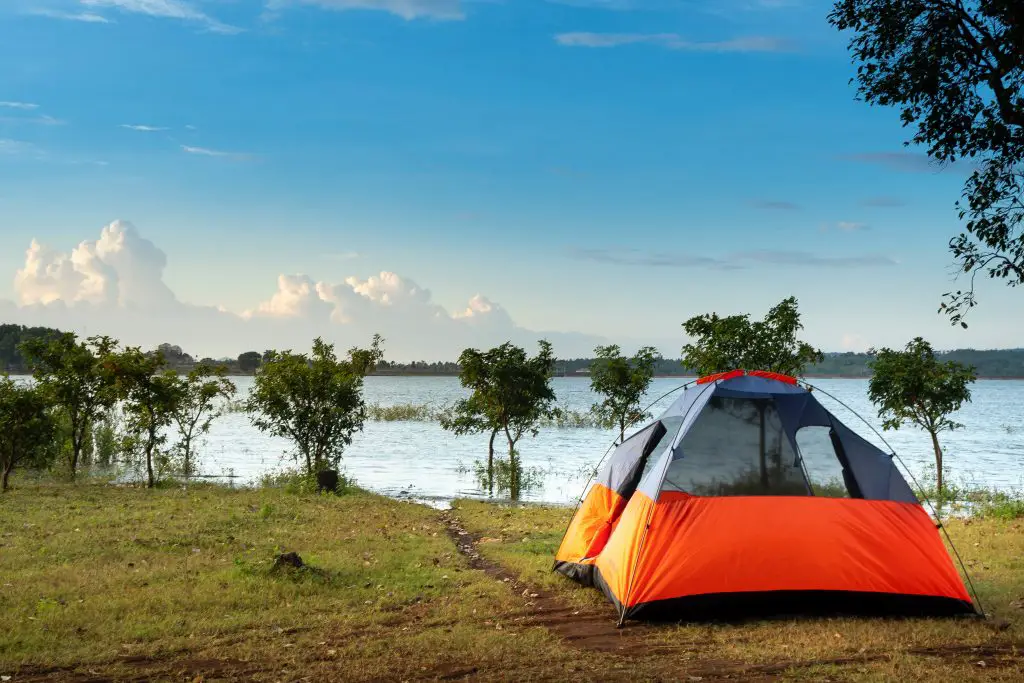
There are so many tent options out there that it is difficult to determine which will be the best for you. Did you know that buying a fantastic tent isn’t the end of the story? You also need to know how to effectively set the tent up and select the perfect spot for tent setup. It truly will make a difference between a comfortable camping escape and a terrible night! Some quick things to consider. Think of the weather conditions where you pitch that tent. High ridgelines will be windy, and low points next to water may flood during weather events. The hazards don’t end with the weather. You also need to consider wildlife interactions and preventing a deadfall tree limb from landing on your tent at night. Selecting your campsite is an important part of backcountry or campground experiences.
4. Shelter Building

Having a tent is fantastic. However, sometimes things go wrong. You may find yourself out in the wilderness with no shelter at all. Unless you are on the History Channel show Alone you are likely to need to protect yourself with a sturdy shelter. You won’t have a tap-out button as they do and the shelter will be a savior! You really can’t anticipate an unplanned night in the outdoors. However, you can prepare for one to have the skills necessary that you need. You will need to know what structures are easiest to make, what tools you should carry with you, and what materials will provide a sturdy, warm environment. You will want to stay dry and up off the ground. So these outdoor skills to master can really come in handy in those long-term emergency situations.
5. Outdoor Relief

We are only human and all of that exercise and hopefully delicious trail food is going to lead to the inevitable call of nature. No not the desire to be amongst the trees. The bathroom call! There is even skill and rules to using the bathroom in nature. For instance, you will want to stay about 200 feet away from trails and water. This helps prevent contamination of the waterways and people stumbling through the refuse. Digging a hole to bury your business is not just a best practice but a must. Carrying a small collapsible shovel can really help when you are on the go (well need to go that is)! This prevents smell as well as helps to keep the area natural. However, you will want to check your local regulations. Some areas will require you to pack out your waste, and it is always a good practice to pack out your toilet paper. So bring some bags along with you as no one is really interested in seeing springtime TP flower blooms!
6. Let the Compass Guide You

We have become very accustomed to using GPS everywhere we go. I imagine you, like I, take for granted the ease with which the satellites triangulate our position. You may be tempted to rely solely on your cell phone for navigating even on a trail. While you should certainly take your cell phone with you in the outdoors, you may not have a signal or worse no service. In these instances, you want to have a compass and map available. Just having them is not enough. Learn how to read your map and interpret a compass. Having these as a backup can help you orienteer your way to safety. It is a skill that takes practice. I recommend that you build yourself a couple of navigating courses in a city park or in your neighborhood. Practicing the skill of using a map and compass can help lead you out of some sticky situations.
7. Getting Knotty with Your Outdoor Skills to Master

There is a reason that every level in the Boy Scouts teaches you a set of knots. Having a basic knowledge of knot tying is essential in the outdoors. There are so many cases of needing to tie a knot. For instance, you may need to tie your tent down, lash something between two trees, or even tie a hook for catching fish. There are a few basic knots like the square knot and two half hitches that come in handy and are easy to learn. Others are just handy to know like a slipknot. However, it is not enough just to know how to tie them but what knot is best in each situation. Practicing knot tying at home is easy and something the children can take part in as well! So get knotty at home before you need to get knotty on the trail!
8. Safe Drinking Water

If you are backcountry camping or doing long thru-hikes it is likely that you are not carrying all of the water you need right from the start. For one thing at 8 pounds per gallon, it is a significant amount of weight to carry. Knowing where to find safe water to drink is critical. On top of that having the tools to further purify the water is just as important. While there are filters available for use, and you should have some of these, you may run out or not have access to them. Instead, you should learn techniques to sanitize your water. For instance, if you are carrying pans with you then you can boil the water for two full minutes. There are also ways to use moss and the sun to help cleanse the water in extreme emergency situations. Knowing these techniques can keep you from becoming dehydrated and sick.
9. Leave No Trace

Leave No Trace needs to be every outdoors person’s creed. With more and more of us heading into nature to experience its grandeur, we need to protect it for future generations. The seven principles of Leave No Trace challenge us to leave nature better than we found it. It shows us the importance of moving through the wilderness with little to no impact. You know what? We aren’t alone here in the United States with these tenants. In fact, Leave No Trace is shared around the world as the world recognizes the importance of our wild areas. So bone up on the guidelines of Leave No Trace before you head out.
10. Trail and Campsite Etiquette
The fact is that more of us are trying to connect with our families through nature than ever before. This means that there are more unskilled people hitting trails and campgrounds. It is important to know how best to live and interact in these settings. Not only will it help you have a better time, but the more people who practice these simple steps, the more all of us will have a peaceful outdoor time. So what things should you consider with campsite etiquette? Well, for starters keeping things neat and tidy is a start. Secondarily, understand how noise and light affect those around you. When it is time to hit the trail know that there are rules that guide how to pass and how to share the trail. Knowing both sets of general etiquette will make the outdoors better for all of us. Learn more of these outdoor skills to master with our camping etiquette tips.
What did we miss on our list of outdoor skills to master? Tell us in the comments below, on our Facebook, or on Reddit!


